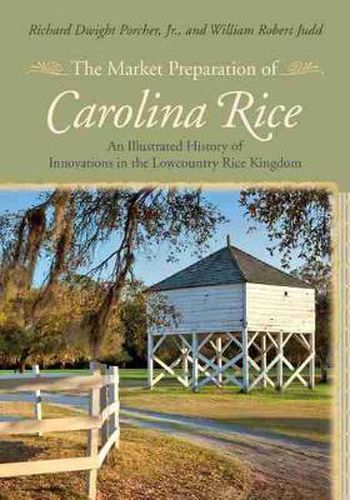Readings Newsletter
Become a Readings Member to make your shopping experience even easier.
Sign in or sign up for free!
You’re not far away from qualifying for FREE standard shipping within Australia
You’ve qualified for FREE standard shipping within Australia
The cart is loading…






Richard Dwight Porcher, Jr., eminent field biologist and lowcountry South Carolina native, has brought all of his skills as a botanist, historian, photographer, and conservationist to bear in a multidisciplinary study of the rice industry in South Carolina from its beginnings in the 1670s to its demise in the twentieth century. Using the tools of the geographer, civil engineer, draftsman and close readings of many primary and secondary sources on the history of rice culture in the colony and state, Porcher and coauthor William Robert Judd have amassed a great body of previously unknown information on rice history.
Detailed illustrations and descriptions of the implements and machines featuring technology used to prepare Carolina rice for overseas markets, The Market Preparation of Carolina Rice includes 161 illustrations, most of them meticulously hand-drafted by Judd expressly for this edition. The book begins with the preindustrial implements and techniques used by African and African American slaves and workers in the late 1600s and early 1700s and concludes with the water- and steam-powered machines that drove rice threshing and milling until the end of the industry in 1911. In great detail the authors reveal the immense, continually evolving technological innovations of an agricultural industry that spanned the Industrial Revolution and much of the history of the colony and state.
With this rich body of knowledge in hand, Porcher stands at odds with theories held by most historians of rice culture who generally assert that the plantation culture of rice was in unrecoverable decline as the South hastened to civil war. Porcher believes that decline was retarded by continuous technological innovation and increasing investment in land, labour, and mechanization as local planters sought to sustain profits in a globally expanding market. Porcher asserts that the post-Civil War loss of slave labour and destruction of infrastructure, a series of hurricanes, competition from rice grown in the American Southwest starting in 1880, and financial restraints that led to the cessation of rice culture in lowcountry South Carolina, North Carolina, and Georgia. Impoverished and unable to adapt to new technologies and market demands, rice planters left the commercial rice enterprise to others.
$9.00 standard shipping within Australia
FREE standard shipping within Australia for orders over $100.00
Express & International shipping calculated at checkout
Richard Dwight Porcher, Jr., eminent field biologist and lowcountry South Carolina native, has brought all of his skills as a botanist, historian, photographer, and conservationist to bear in a multidisciplinary study of the rice industry in South Carolina from its beginnings in the 1670s to its demise in the twentieth century. Using the tools of the geographer, civil engineer, draftsman and close readings of many primary and secondary sources on the history of rice culture in the colony and state, Porcher and coauthor William Robert Judd have amassed a great body of previously unknown information on rice history.
Detailed illustrations and descriptions of the implements and machines featuring technology used to prepare Carolina rice for overseas markets, The Market Preparation of Carolina Rice includes 161 illustrations, most of them meticulously hand-drafted by Judd expressly for this edition. The book begins with the preindustrial implements and techniques used by African and African American slaves and workers in the late 1600s and early 1700s and concludes with the water- and steam-powered machines that drove rice threshing and milling until the end of the industry in 1911. In great detail the authors reveal the immense, continually evolving technological innovations of an agricultural industry that spanned the Industrial Revolution and much of the history of the colony and state.
With this rich body of knowledge in hand, Porcher stands at odds with theories held by most historians of rice culture who generally assert that the plantation culture of rice was in unrecoverable decline as the South hastened to civil war. Porcher believes that decline was retarded by continuous technological innovation and increasing investment in land, labour, and mechanization as local planters sought to sustain profits in a globally expanding market. Porcher asserts that the post-Civil War loss of slave labour and destruction of infrastructure, a series of hurricanes, competition from rice grown in the American Southwest starting in 1880, and financial restraints that led to the cessation of rice culture in lowcountry South Carolina, North Carolina, and Georgia. Impoverished and unable to adapt to new technologies and market demands, rice planters left the commercial rice enterprise to others.